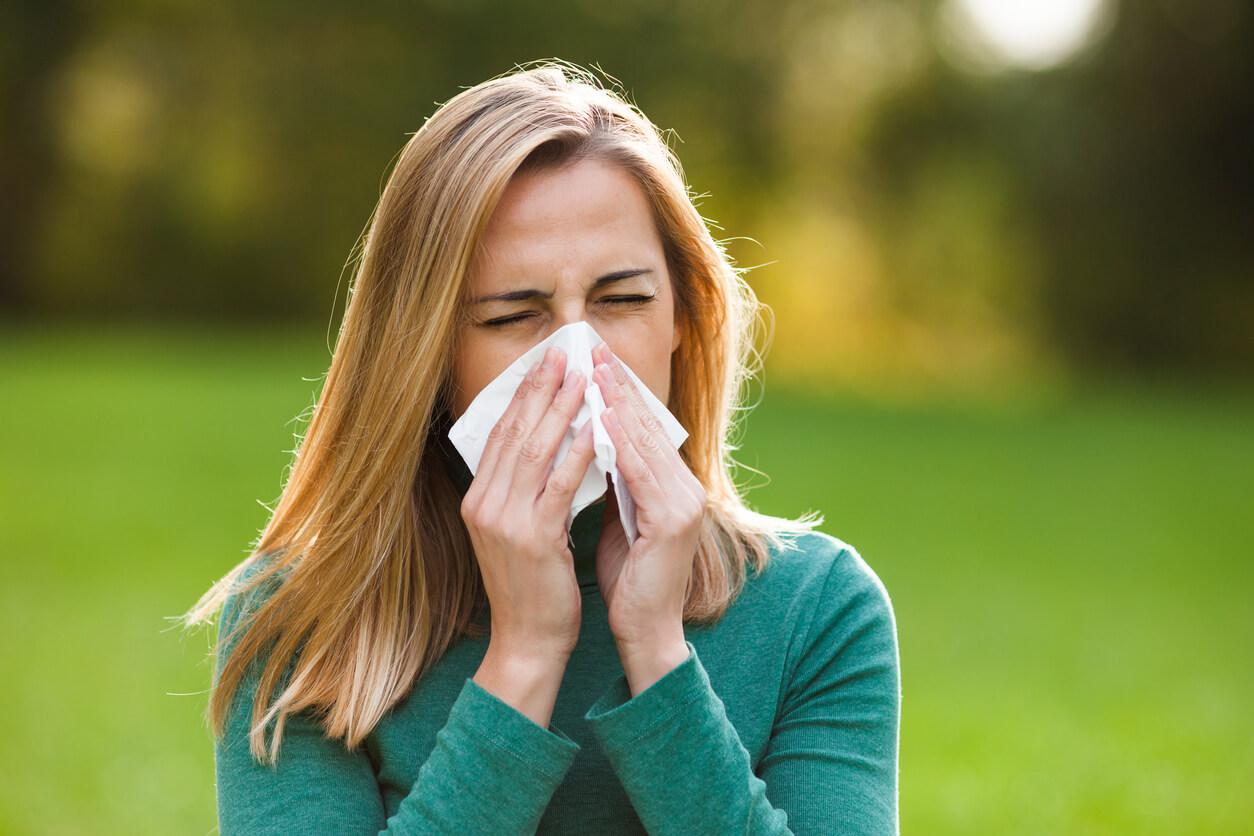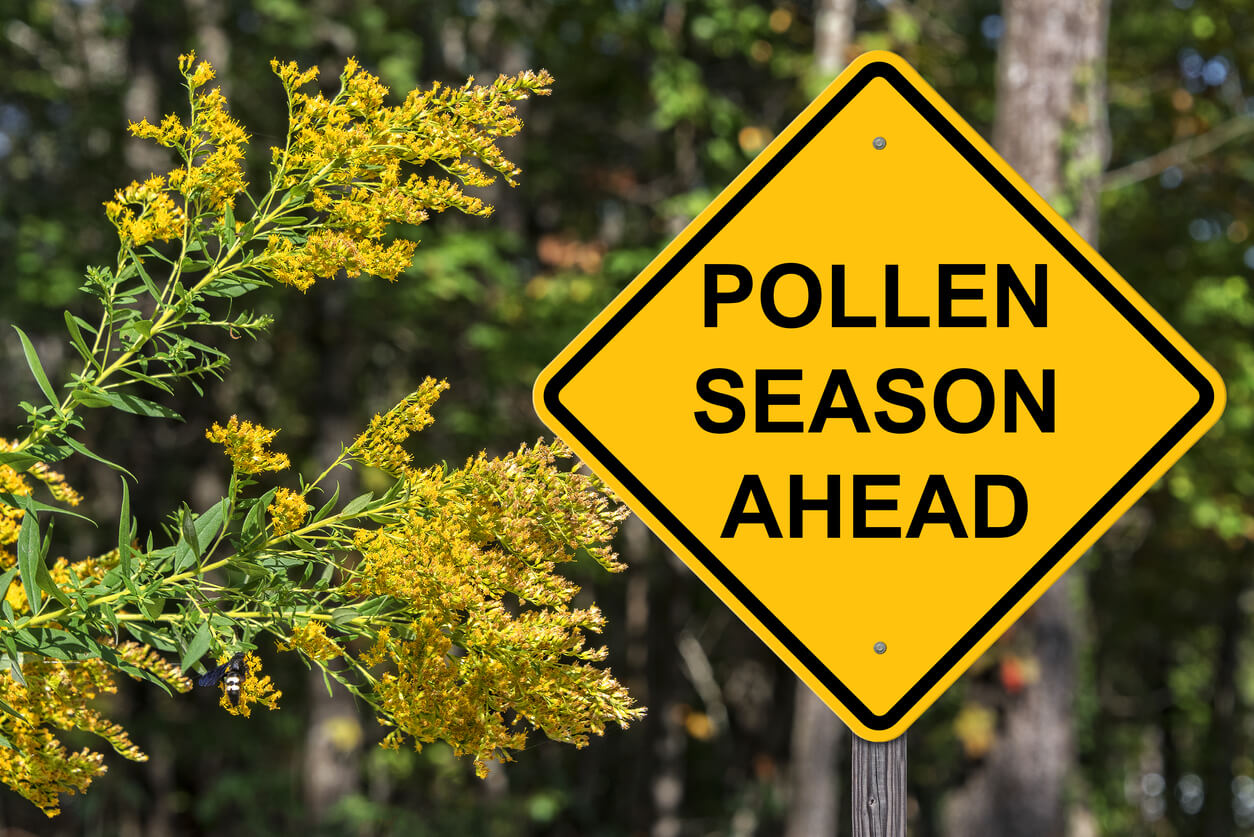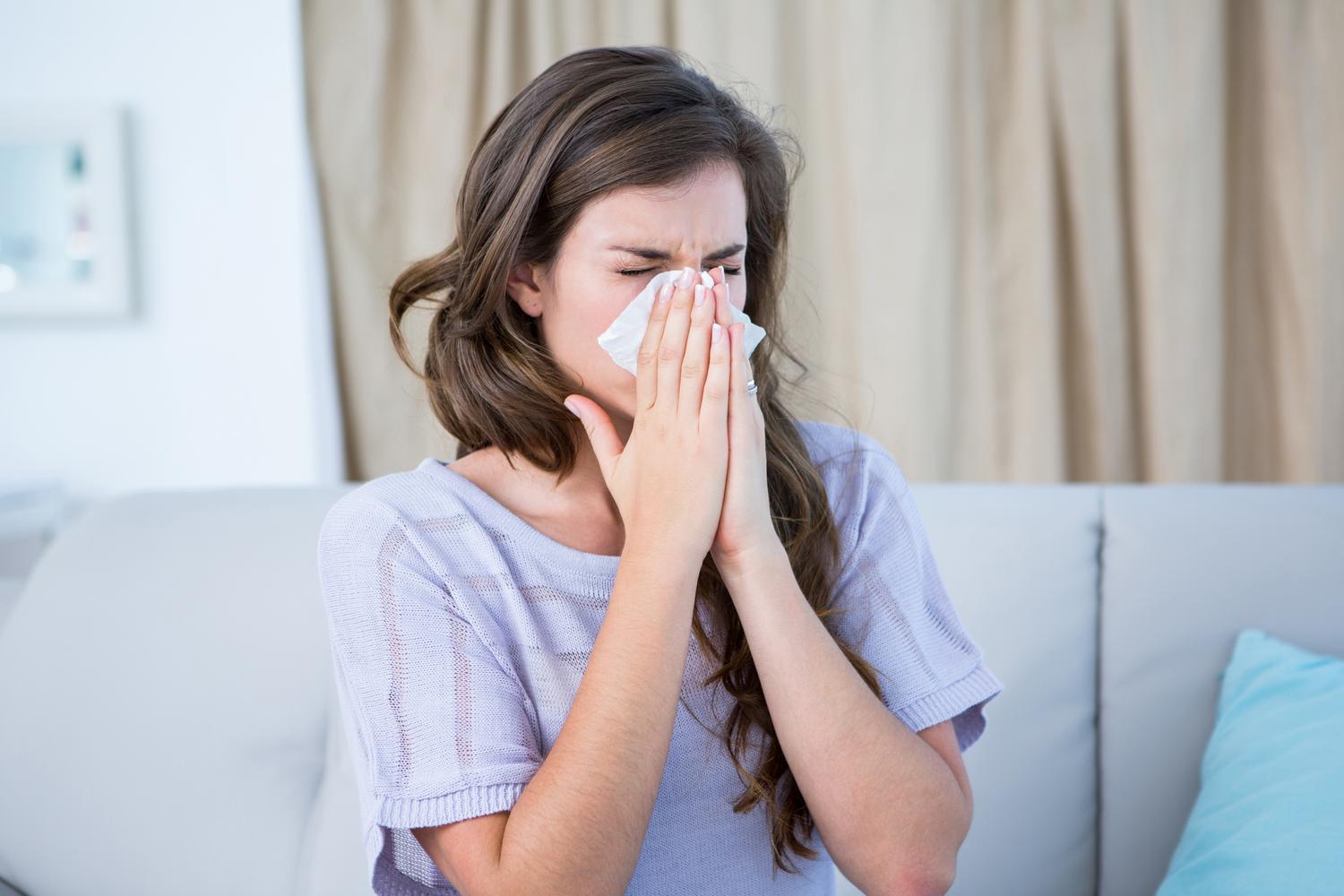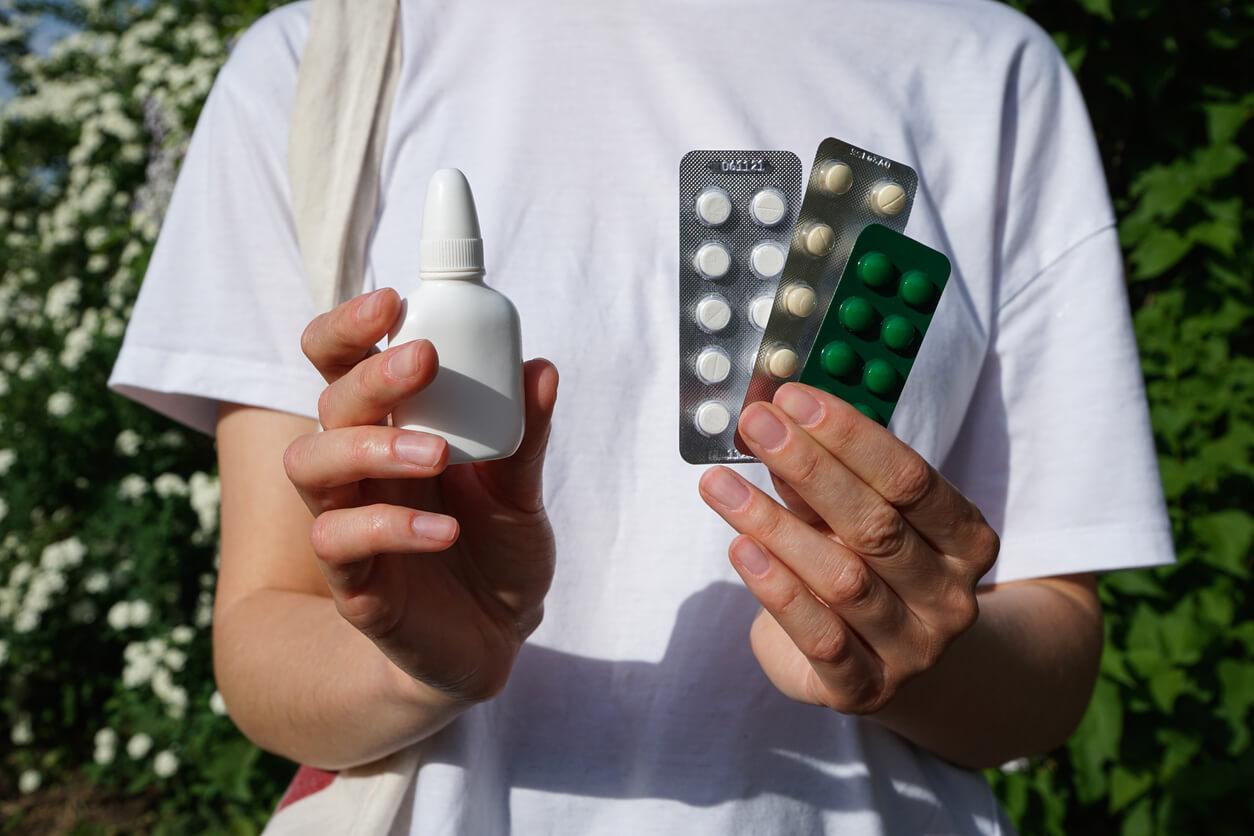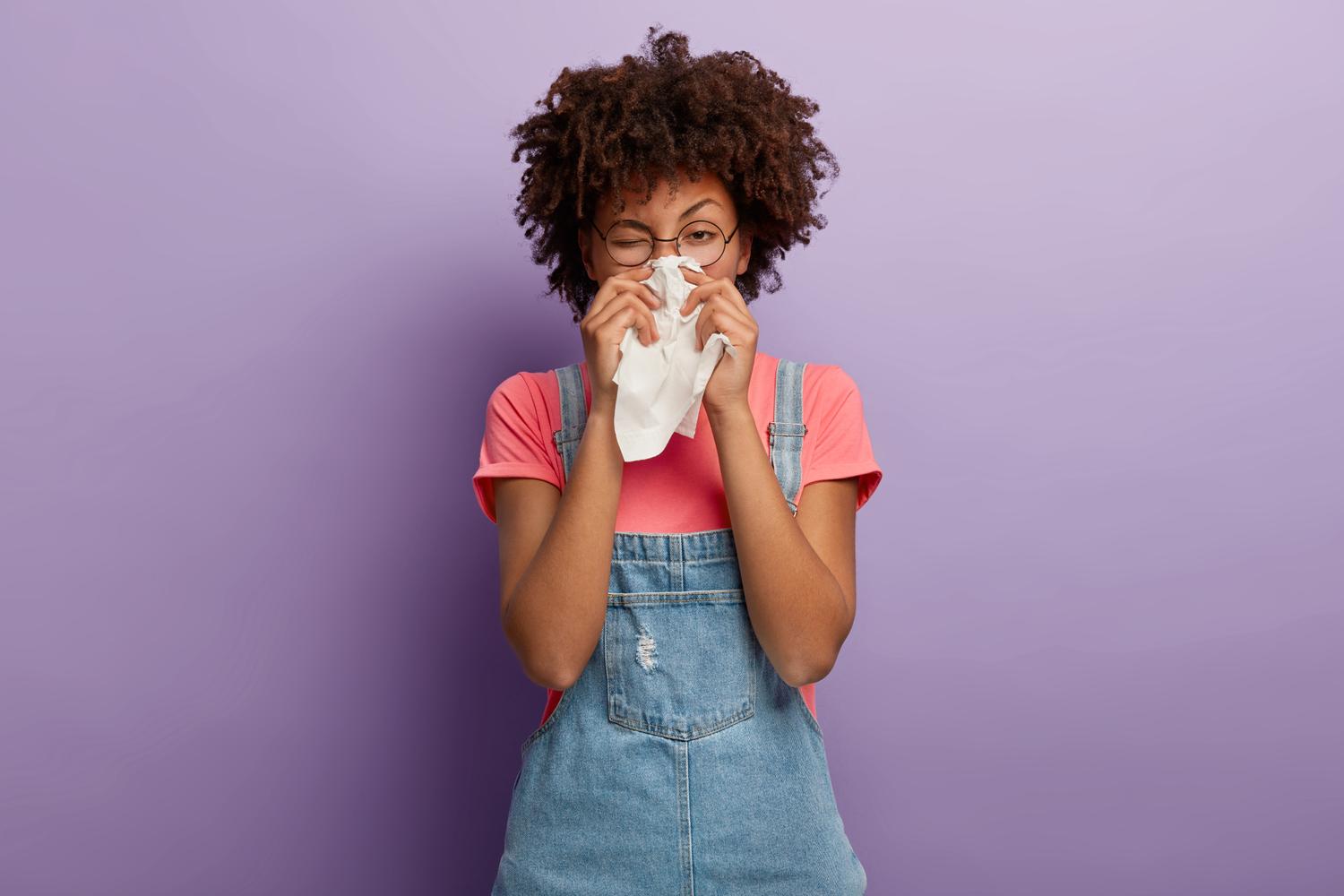The Best Allergy Medications: OTC and Prescription Drugs
Key takeaways
- There are a wide range of over-the-counter (OTC) and prescription allergy medications, each offering different kinds of symptom relief
- Antihistamines are generally best for relief from sneezing and itching, while nasal corticosteroids are best for long-term allergy congestion and inflammation. For immediate, short-term relief, decongestants are usually the best option.
- If medication isn't helping your symptoms, consider talking to a provider about immunotherapy or additional self-care strategies.
Whether you have seasonal allergies or year-round irritation, allergy symptoms can seriously affect your day.
Unfortunately, no one has found a way to completely cure allergies yet. The upside is that many medication options are available to reduce your symptoms and improve your quality of life.
We’ve detailed some of the best allergy medication options available, including antihistamines, nasal steroid sprays, and decongestants, to help you find the best treatment for your allergies.
Common causes of allergies
Allergies happen when your immune system mistakes things like pollen or pet dander for a threat. When this occurs, your immune system responds by releasing a substance called histamine. The release of histamines causes the symptoms we call an allergic reaction.
Common allergens include:
- Pollen (from weeds, trees, flowers, and grass)
- Mold and mildew
- Animal dander
- Dust mites
When triggered, allergy symptoms can include:
- Runny nose
- Stuffy nose (nasal congestion)
- Itchy nose
- Sneezing
- Itchy eyes
- Watery eyes
- Sinus congestion/ sinus pain
- Postnasal drip (mucus dripping down the nasal passages)
- Hives
- Sore throat
- Changes in sense of smell or taste
- Puffiness under the eyes
- Fatigue
- Headache
What's the best allergy medicine for you?
The best allergy medication for you depends on your symptoms and what's causing your allergies in the first place. We’ve broken down your medication options by best overall relief, best long-term symptom treatment, and the best medication for instant relief.
Best medicines for allergy relief
Over-the-counter (OTC) and prescription oral antihistamines are your best bet for treating off and on allergy symptoms, especially for seasonal allergies. These medications work by blocking the body’s release of histamines, which can cause symptoms like a runny nose, watery eyes, and sneezing (allergic rhinitis).
OTC antihistamines include:
- Cetirizine (generic for Zyrtec)
- Diphenhydramine (generic for Benadryl)
- Fexofenadine (generic for Allegra)
- Levocetirizine (generic for Xyzal)
- Loratadine (generic for Alavert and Claritin)
A review of multiple studies shows that among OTC antihistamines, fexofenadine 180 mg (generic for Allegra) was the best at reducing allergy symptoms. However, the differences between fexofenadine and other drugs were not very significant.
For more severe allergy symptoms, prescription antihistamines may be needed. In addition, if you have persistent allergy symptoms that don’t go away after OTC treatment, your provider may choose to prescribe you prescription-strength antihistamines.
Prescription antihistamines include:
- Azelastine nasal spray (generic for Astelin and Optivar)
- Cyproheptadine (generic for Periactin)
- Desloratadine (generic for Clarinex)
- Hydroxyzine (generic for Vistaril)
- Rupatadine (generic for Rupafin)
Your healthcare provider will determine the best prescription-strength antihistamine for you.
Best medicines for long-term allergy prevention
Nasal corticosteroids (steroid nasal sprays) are considered the most effective option for people who experience allergy symptoms throughout the year. While they can take several weeks to work, these nasal sprays can help prevent the release of histamines before an allergic response occurs.
OTC steroid nasal sprays include:
- Budesonide (Rhinocort)
- Fluticasone furoate (Flonase)
- Mometasone (Nasonex 24HR Allergy)
- Triamcinolone (Nasacort)
__Prescription steroid nasal sprays include:
- Beclomethasone (Beclonase)
- Ciclesonide (Omnaris, Zetonna)</a>
- Flunisolide (Nasarel)
- Fluticasone propionate
- Mometasone (Nasonex)
Best medicines for immediate relief
Decongestants will provide immediate relief for nasal allergy symptoms (like congestion). These drugs should only be used on a short-term basis. Decongestants reduce inflammation in the nasal passages, making it easier to breathe.
Decongestants are available as oral tablets or nasal sprays. Most decongestant drugs are available in over-the-counter and prescription-strength options.
OTC decongestants include:
- Loratadine and pseudoephedrine (generic for Claritin)
- Cetirizine and pseudoephedrine (generic for Zyrtec-D)
- Fexofenadine and pseudoephedrine (generic for Allegra-D)
- Oxymetazoline (generic for Afrin)</a>
Prescription decongestants include:
- Desloratadine and pseudoephedrine (generic for Clarinex-D)
- Tetrahydrozoline (generic for Tyzine), available as a nasal spray or eye drops
Comparing allergy medications
| Antihistamines | Nasal Steroid Sprays | Decongestants | |
|---|---|---|---|
| Popular brand names: | Zyrtec, Allega, Claritin | Nasonex, Rhinocort, Flonase | Claritin-D, Allegra-D, Zyrtec-D |
| Best for: | Allergy symptom relief | Allergy symptom prevention | Immediate symptom relief |
| When to use it: | Daily | Daily | Daily, as needed |
| How long to use it: | Year-round; or, 2-4 weeks before allergy season | Year-round; or, 2-4 weeks before allergy season | As needed for no more than 7 days in a row |
| Potential side effects: | Dry mouth, dry eyes, dizziness | Nosebleeds, nose irritation, unpleasant taste | Headaches, dry mouth, congestion |
| How long it takes to work: | 30 minutes | 2-4 weeks | 15-30 minutes |
When to take allergy medications
Almost as important as what medication you’re taking is when you’re taking it. Antihistamines and steroid nasal sprays need to be taken for several weeks. On the other hand, decongestants should be used sparingly. Frequent use of decongestants can actually make your symptoms worse.
Antihistamines: You can take an OTC antihistamine every day to prevent allergy symptoms. If you don’t want to take one every day, it is recommended that you start taking antihistamines 2-4 weeks before allergy season starts.
Nasal steroid sprays: Nasal steroid sprays are the top choice for year-round allergies. If you have mild or moderate allergy symptoms year-round, use a nasal spray every day. If you have seasonal allergies and don’t want to use a nasal spray every day, start these medicines 2-4 weeks before allergy season.
Decongestants: Decongestants provide immediate relief for allergy symptoms. But they should be used on a short-term, as-needed basis. Studies have shown that nasal decongestant sprays make congestion worse. This happens when they are used for more than a few days. In addition, decongestants can raise blood pressure. They are not recommended for patients with high blood pressure or those at risk of heart disease.
Do allergy medications make you drowsy?
Some allergy medications can make you drowsy, but not all of them. Drowsiness is most common with first-generation antihistamines, such as:
- Brompheniramine (generic for Dimetane)
- Chlorpheniramine (generic for Chlor-Trimeton)
- Clemastine (generic for Dayhist)
- Diphenhydramine (generic for Benadryl)
- Doxylamine (generic for Vicks NyQuil)
Do not use any machinery or try to do daily activities after taking a first-generation antihistamine.
What are my other allergy treatment options?
There are a few other allergy treatment options besides medications. These include several allergy self-care measures and immunotherapy:
Self care options involve avoiding allergy triggers as much as possible. Some common strategies include:
- Keeping windows closed during high pollen seasons
- Using saline nasal rinses (like neti pots) to flush out allergens
- Using HEPA air filters to reduce airborne triggers
- Washing bedding frequently in hot water
- Showering and changing clothes after being outdoors
While these options may provide relief for some, it's important to consult with a healthcare provider before starting any alternative treatment, especially if you have other medical conditions or take medications.
Immunotherapy is a longer-term treatment that helps your body gradually become less sensitive to allergens. There are two main types:
- Allergy shots (subcutaneous immunotherapy), which involves getting regular injections over time to help reduce your body's histamine response to allergy triggers
- Sublingual immunotherapy, which are tablets or drops that are mixed with your allergen and then placed under the tongue to help the body's immune system adjust to the allergen
Immunotherapy can be especially helpful if you have severe allergies or don't get enough relief from medications.
How Sesame can help
If you're exploring allergy treatment options, book a same-day online allergy appointment on Sesame.
You'll be able to chat with a provider via telehealth or in-person to talk about your symptoms and the best treatment for you. If appropriate, providers can also prescribe allergy medication and send it to your local pharmacy for pickup within minutes of your appointment.


